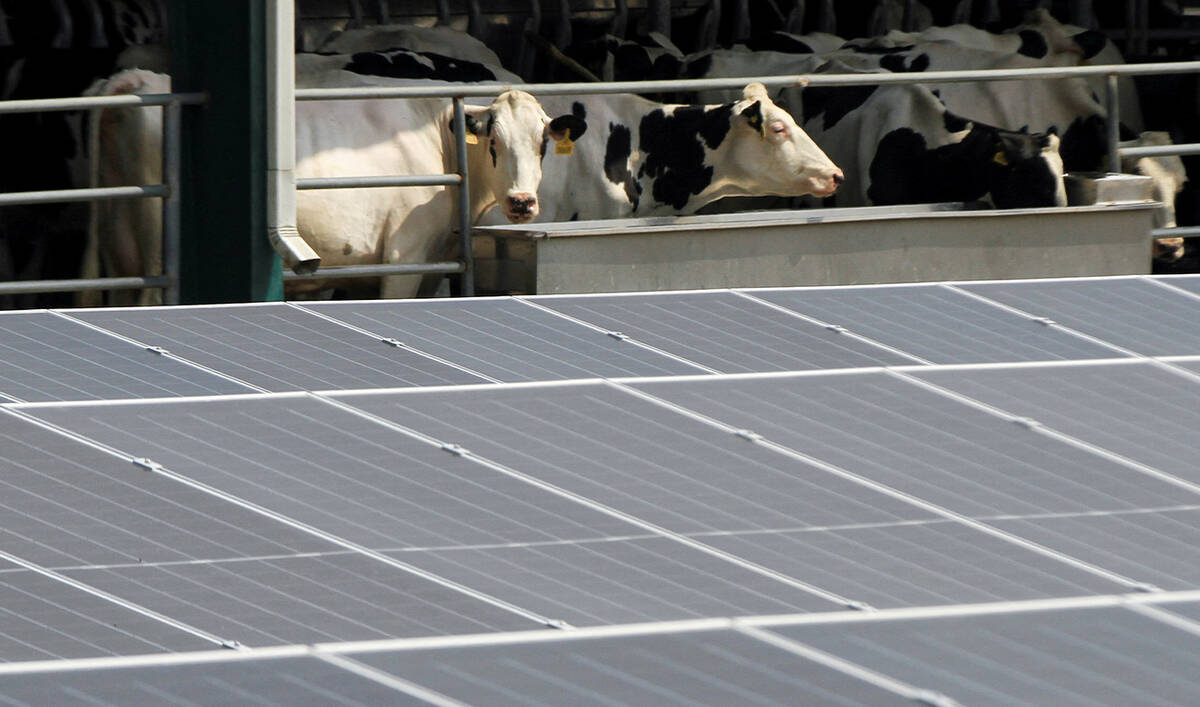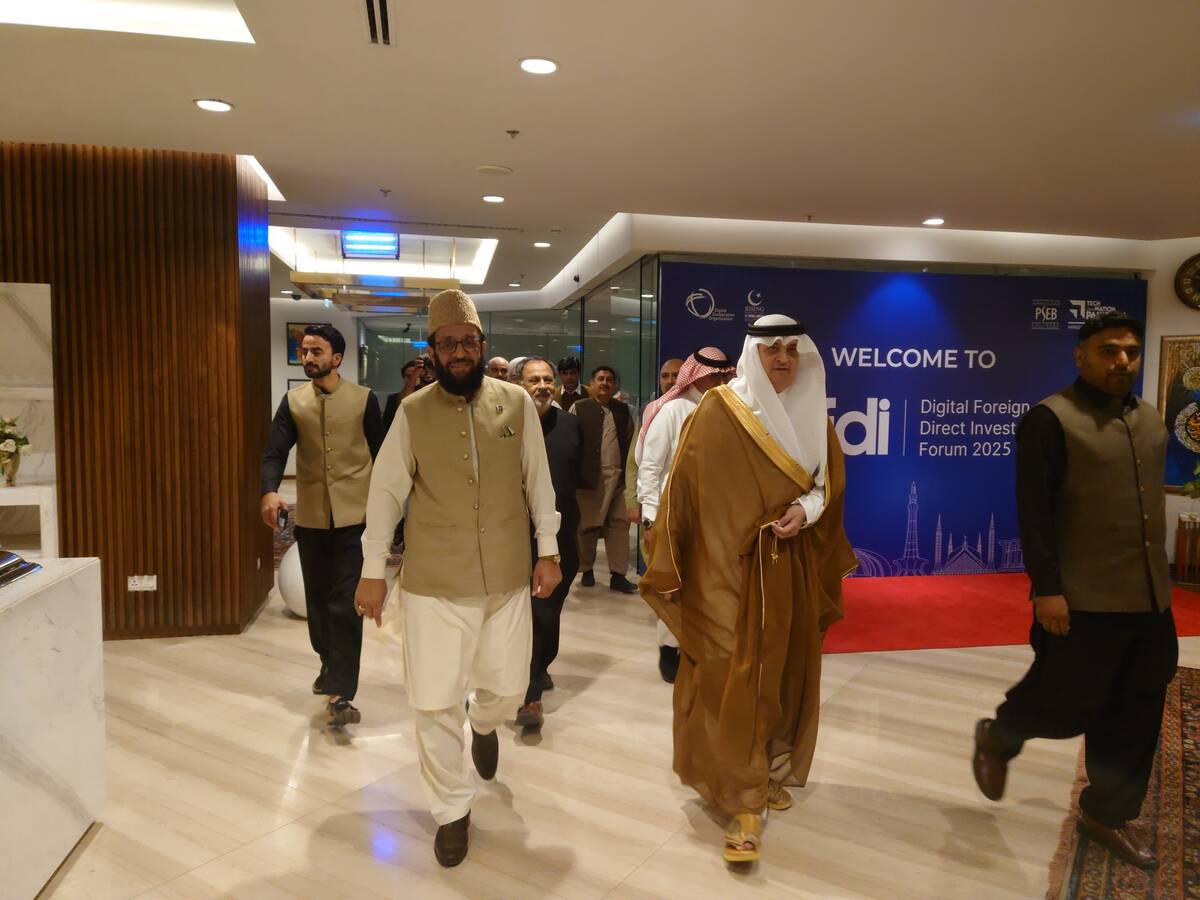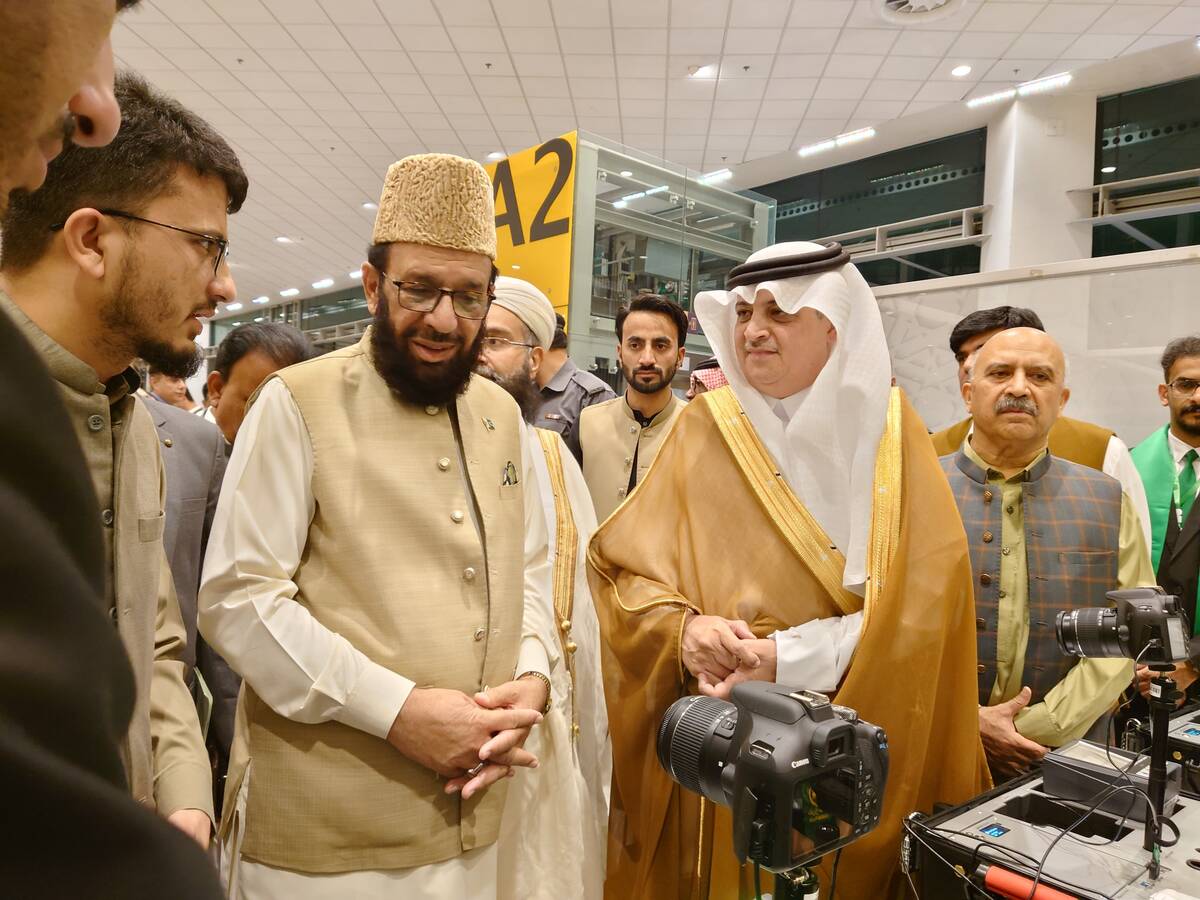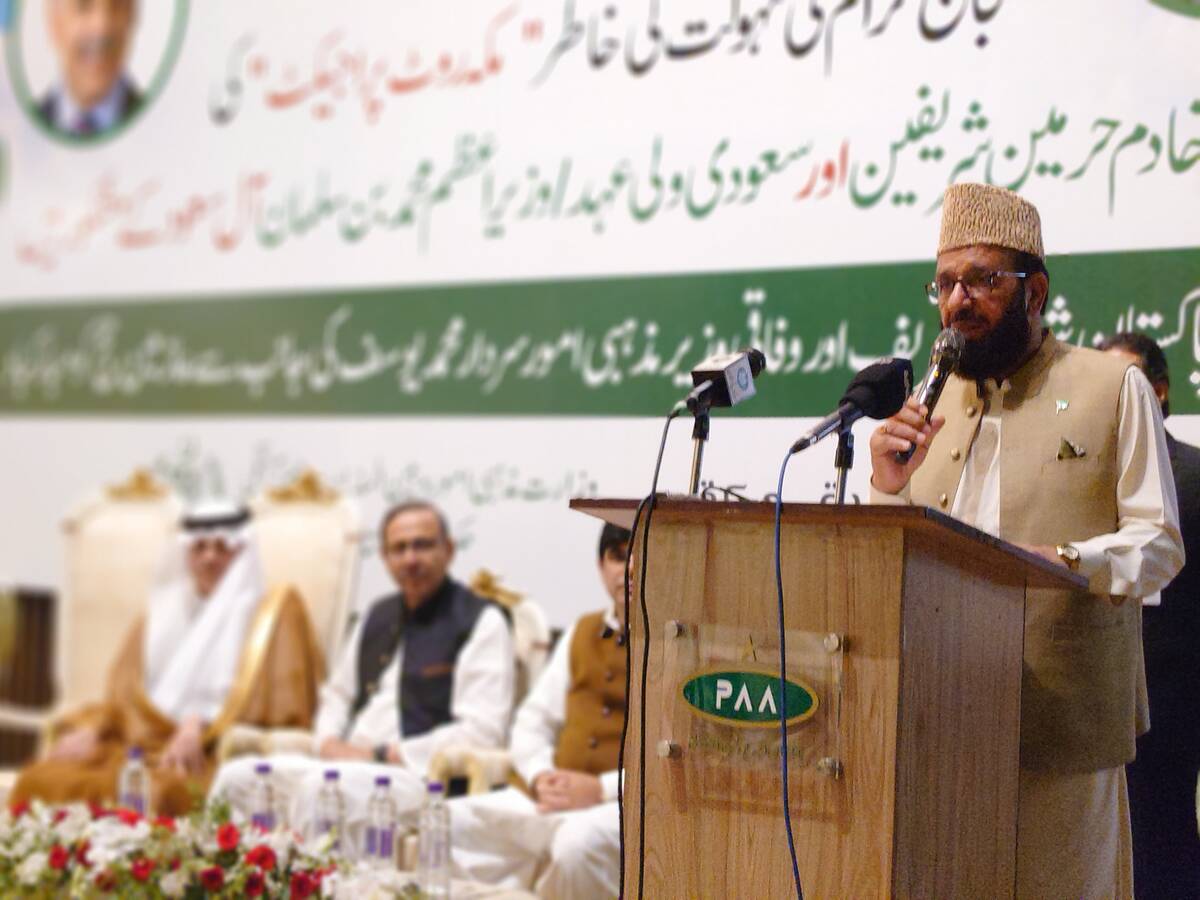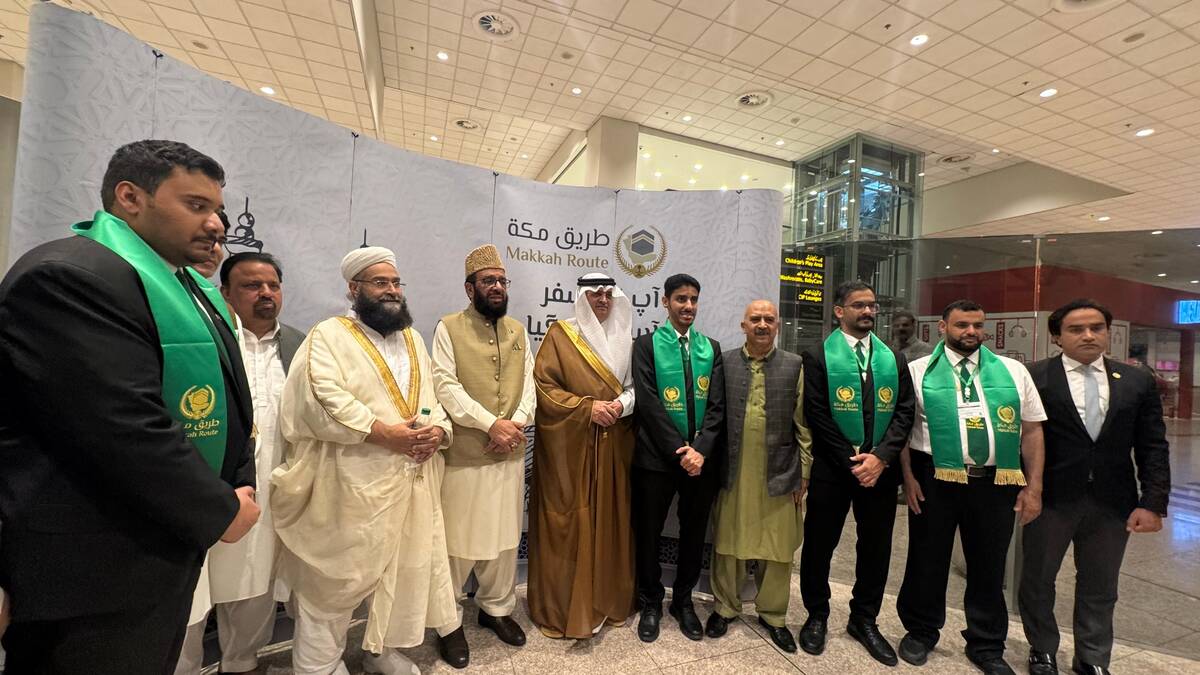KHAPLU: Farmers in Pakistan’s northern Gilgit-Baltistan region have been able to irrigate barren land under a government scheme introduced in 2015 to create livelihood opportunities and increase the agricultural income of about 100,000 rural households, said its beneficiaries while speaking to Arab News.
The Economic Transformation Initiative for Gilgit-Baltistan (ETIGB) was originally envisaged as a multifaceted, seven-year project which had to end last September. Given its success in achieving its primary objectives, however, it was further extended for about two years.
The $120 million initiative not only sought to increase the agricultural output by organizing farmers by giving them substantial land but also supported them further by building water channels and farm-to-market roads.
As a result, the project enabled a large number of families cultivate their own crops while benefiting others in the community in a region where only one percent of the land has been used for agriculture. The rest of Gilgit-Baltistan’s nearly 72,000 square kilometers of administrative territory consist of 52 percent rangelands, four percent forests while the remaining portion has mountains and barren land.
“There are 106 households in our village,” said Muhammad Abbas, a 45-year-old retired soldier, who got his own land under the scheme and has since been growing wheat, potatoes and beans in his native town. “Every household got eight kanal of land.”
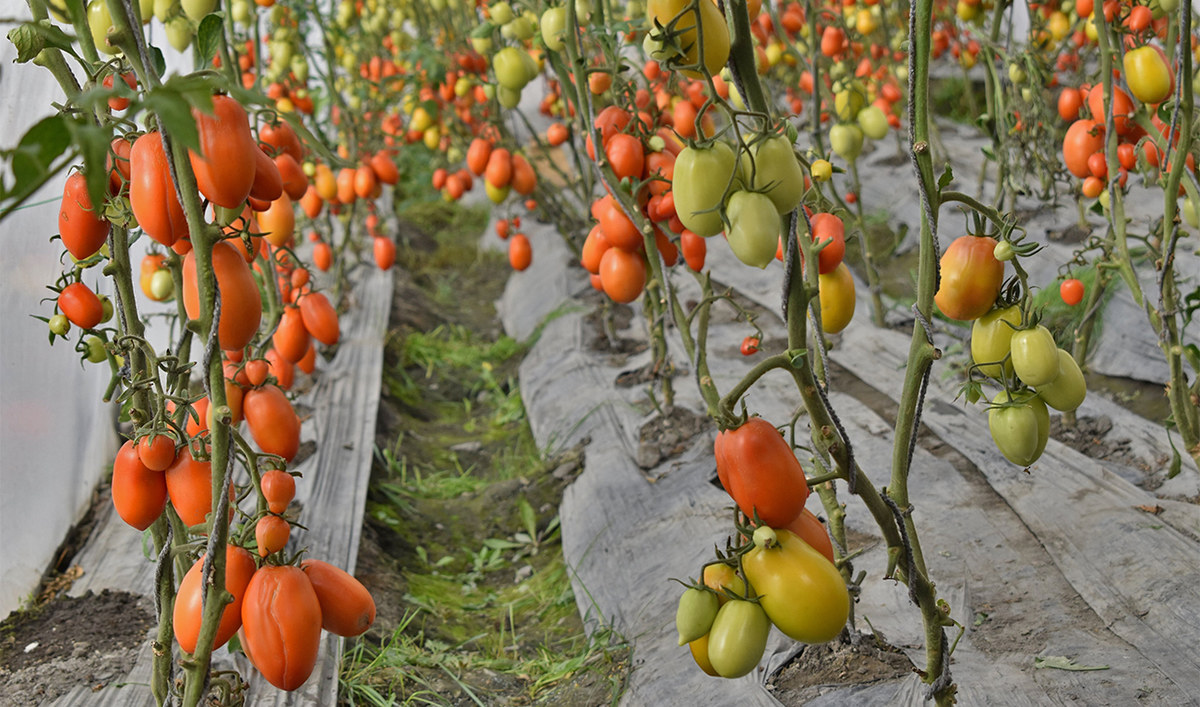
This aerial posted on October 5, 2022, shows tomato crops cultivated through vertical farming in Shimshal valley in Pakistan’s northern Gilgit-Baltistan region. (Photo courtesy: ETIGB)
One kanal measures about 506 square meters.
The Gilgit-Baltistan administration gave vast swathes of barren lands to people after the project was co-financed by International Fund for Agriculture Development (IFAD) that works under the auspices of the United Nations. The initiative was viewed as highly significant since the area remains heavily dependent on subsidized wheat from Punjab due to an acute shortage of irrigable land.
“The length of the upper side of our main water channel [build under the project] is about 13,900 feet and the length of the sub-channels is almost 5,400 feet,” Abbas said. “We get the water for farming in April and it reaches our lands in one and a half hours from the source.”
He informed he was not the only one benefiting from the initiative, adding that hundreds of other farmers in different valleys of the region had similar stories to tell.
60-year-old Zulaikha, who goes by a single name, is one of them. She told Arab News she had been growing wheat, potatoes and spinach on her land after getting adequate water for farming.
“I have been growing wheat and spinach etc. for the last two years since we have got enough land for farming,” she said. “Previously, we purchased wheat for home, but we are now producing it on our own.”
Barkat Ali, a deputy program coordinator at the ETIGB, said the success of the project required the construction of 400-kilometer farm-to-market roads and bridges.
“The purpose of this project was to increase the agricultural income and employment of rural households in Gilgit-Baltistan through sustainable development of agricultural value chain,” he said. “The construction of roads and RCC [reinforced cement concrete] bridges was not only to meant to address the connectivity issue among valleys and main roads of the district but also to reduce the distance between the production areas and markets.”
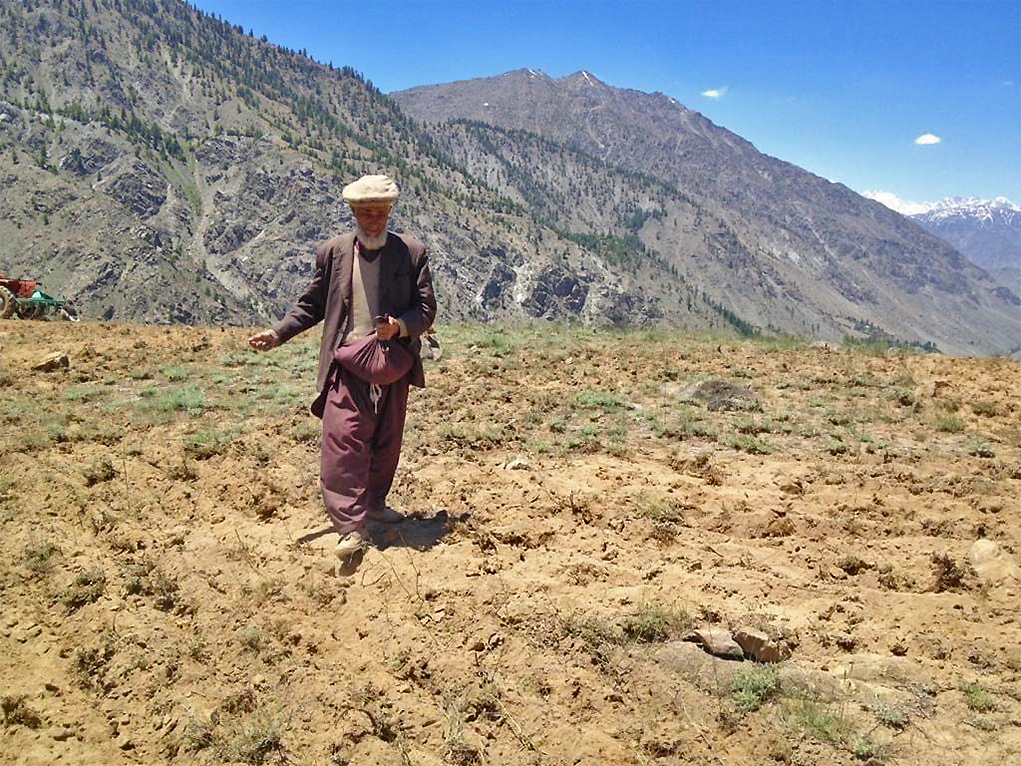
A farmer is throwing seeds to grow wheat crop on a land developed under the Economic Transformation Initiative for Gilgit-Baltistan (ETIGB) in Astore, Pakistan, on June 10, 2021. (Photo courtesy: ETIGB)
“So far, we have been able to reach out over 65,000 farmers across Gilgit-Baltistan through our intervention which includes introduction of improved farming practices and value addition of fruits,” he added. “The intervention also ensured the availability of improved varieties of vegetables and other seeds for the community and farmers. We have established 500 commercial orchards and over 30 nurseries of verified varieties of apple apricot and cherries.”
The ETIGB official informed that 42,500 acres of barren land had so far been cultivated under the project against the initial target of 50,000 acres. He added that 78 irrigation channels of about 550 kilometers had been built across four districts of the region while seven RCC bridges and 385 kilometers of farm-to-market roads had also been constructed.
Asked about the challenges faced during the implementation of the initiative, Ali said Gilgit-Baltistan offered a limited “working season” to carry out infrastructure activities.
“COVID was another factor affecting the program implementation,” he continued. “Other than that, there were community conflicts and other social problems that sometimes slowed down the pace of the project.”
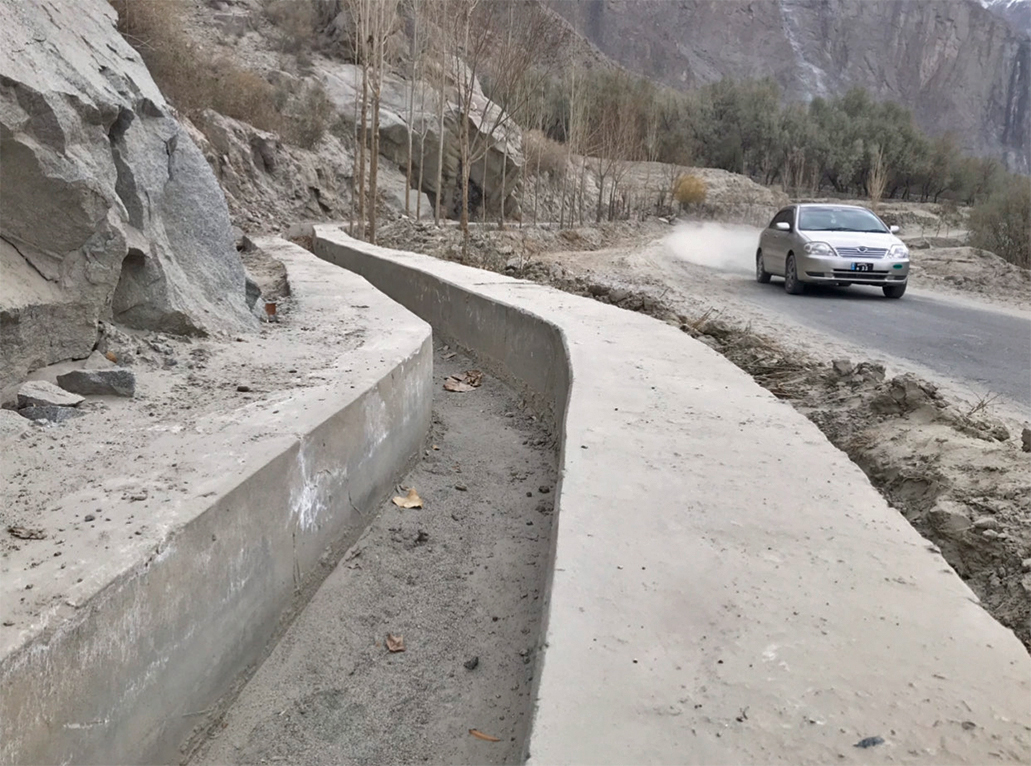
A view of a newly constructed water channel in Ghanche, Pakistan, on December 6, 2022. (AN Photo)
Away from such programmatic challenges, Abbas said he was eager to see the market response to his agricultural yield after the initiative was fully implemented.
“We are very hopeful that this place will become our future source of income,” he said while tilling his land.
This report was written and produced as part of a media skills development program by the Thomson Reuters Foundation








